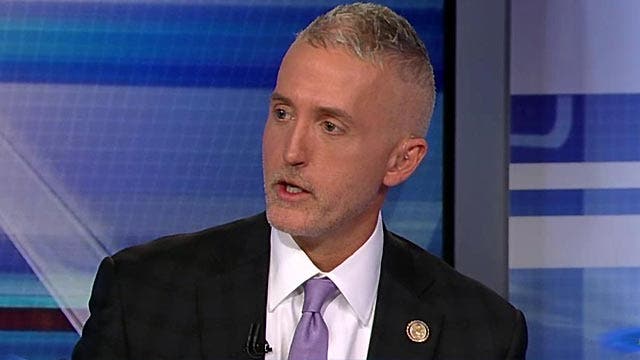Lessons of Benghazi still not learned?
State Dept. watchdog warns US personnel overseas remain at 'increased' due to security shortcomings at diplomatic posts. Benghazi Select Committee Chair Trey Gowdy sounds off. #Benghazi
The top watchdog for the State Department warned Wednesday that U.S. personnel overseas remain at "increased risk" due to security shortcomings at diplomatic posts, including the "egregious" use of warehouses that don't meet security standards for office space.
Steve Linick, inspector general for the department, testified Wednesday during the second public hearing of the special House committee reviewing the 2012 terror attack in Benghazi, Libya.
Reviewing the findings of his office's audits since that attack, he cited several areas of concern. Chief among them were concerns about the physical security standards at overseas posts, including how the department was using "warehouse space" and other remote facilities for offices that did not comply with standards.
This, he said, "places personnel at great risk."
It's unclear to what extent the department has addressed those concerns. The inspector general's office, in a report last year, said security fell short for a number of reasons, including changes in the security standards themselves. The department has acknowledged some of the deficiencies and pledged to address them, while downplaying others as "minor."
Linick on Wednesday also cited findings from earlier this year that the department has had trouble properly vetting local guards that patrol diplomatic posts overseas.
"One bad actor with the right position and access can seriously endanger" personnel, he said.
Greg Starr, assistant secretary for diplomatic security, also testified at Wednesday's hearing and said the department is making "measurable and sustained" progress -- particularly in implementing recommendations in the State Department-ordered review by the Accountability Review Board. He said they've completed 25 of 29 recommendations.
"We cannot eliminate risks," Starr said, adding: "I am committed to keeping our people as safe as possible."
Separate from the testimony, the Wall Street Journal reported on another inspector general review that found problems with five newly opened U.S. diplomatic facilities in 2012.
Rep. Trey Gowdy, R-S.C., chairman of the Benghazi committee, said his committee will continue to press for answers on the security environment at the Benghazi compound, and why requests for additional equipment and personnel were denied. Four Americans, including U.S. Ambassador Chris Stevens, died in the attack.
"We should not move on until there is a complete understanding of how the security environment ... was allowed to exist," Gowdy said.
Rep. Elijah Cummings, D-Md., the top Democrat on the panel, said the department is making "steady progress" toward improving security and making changes.





